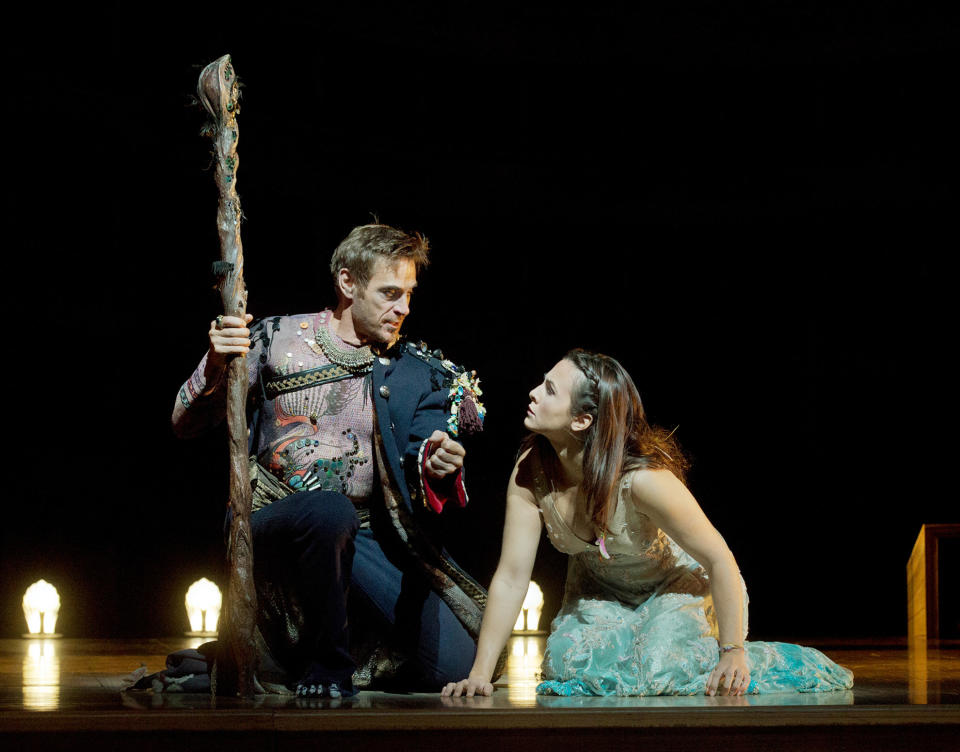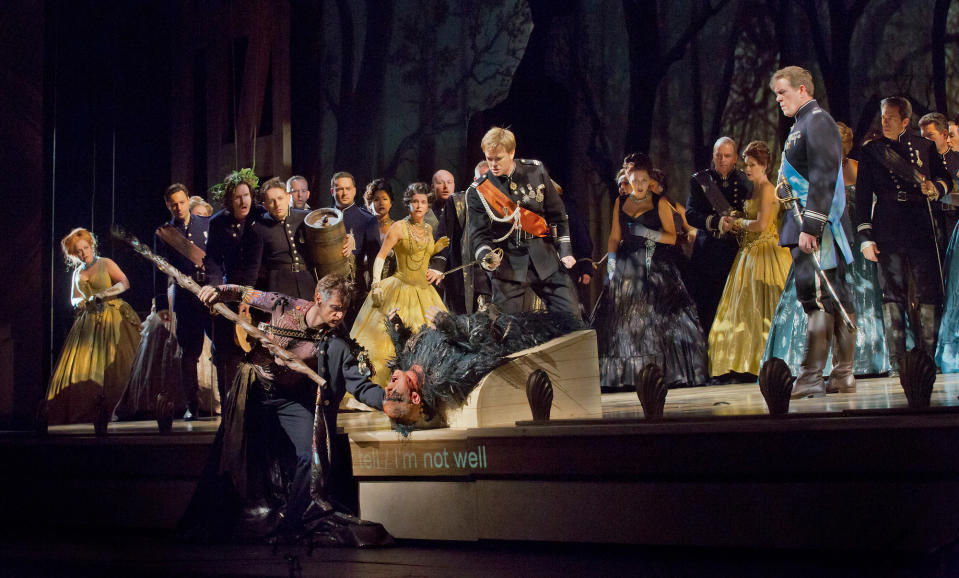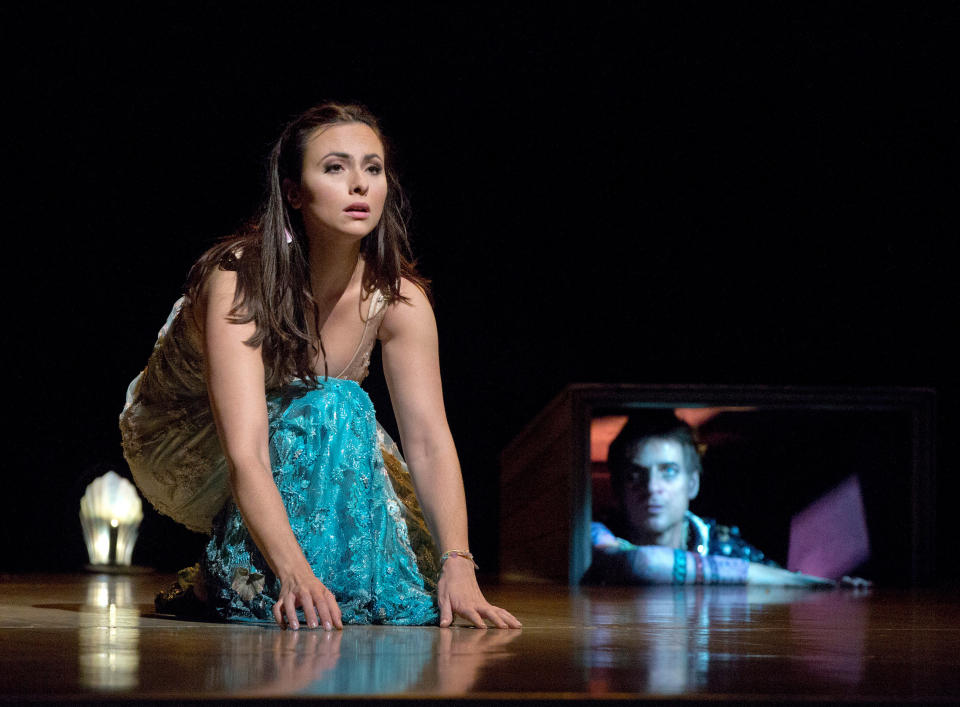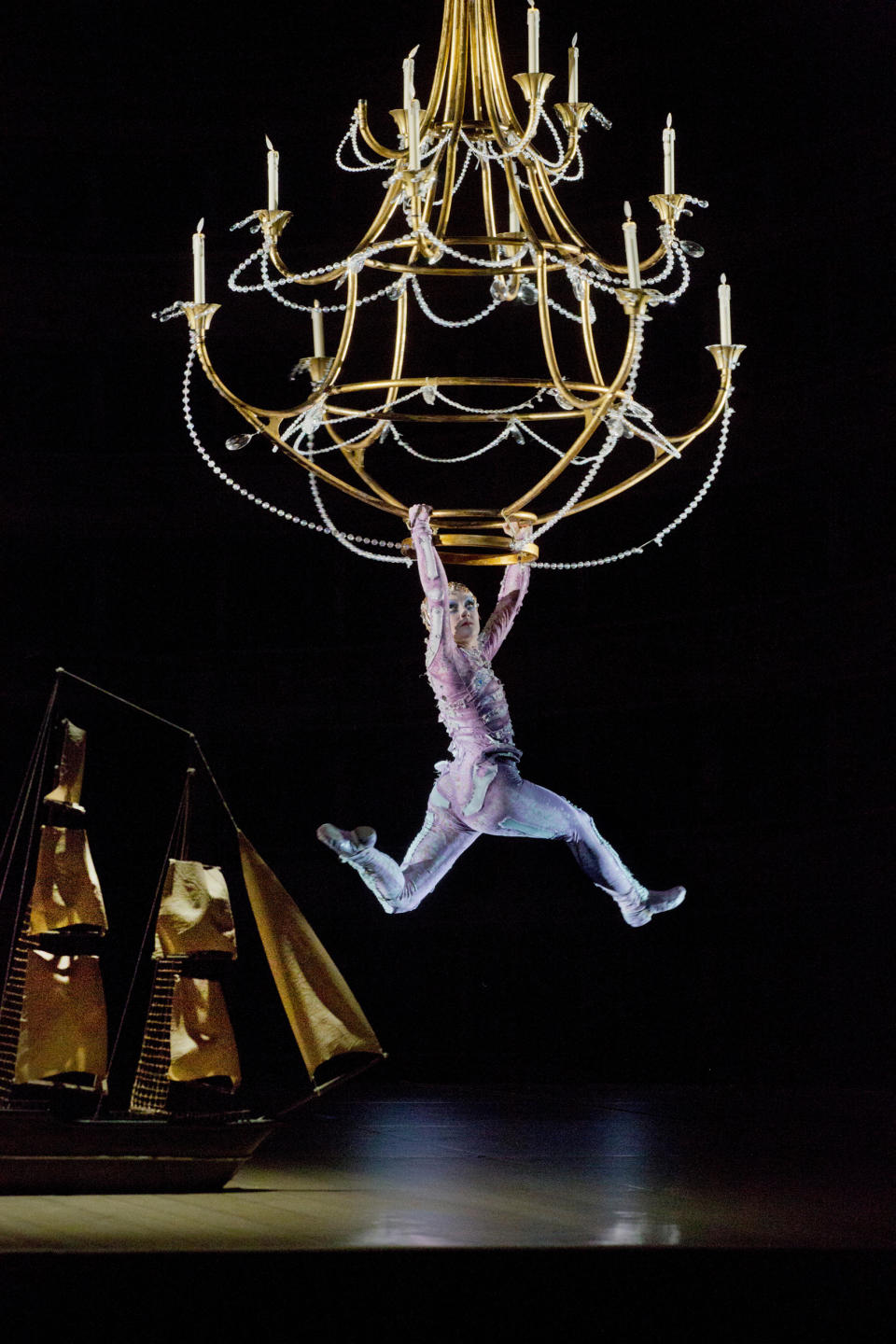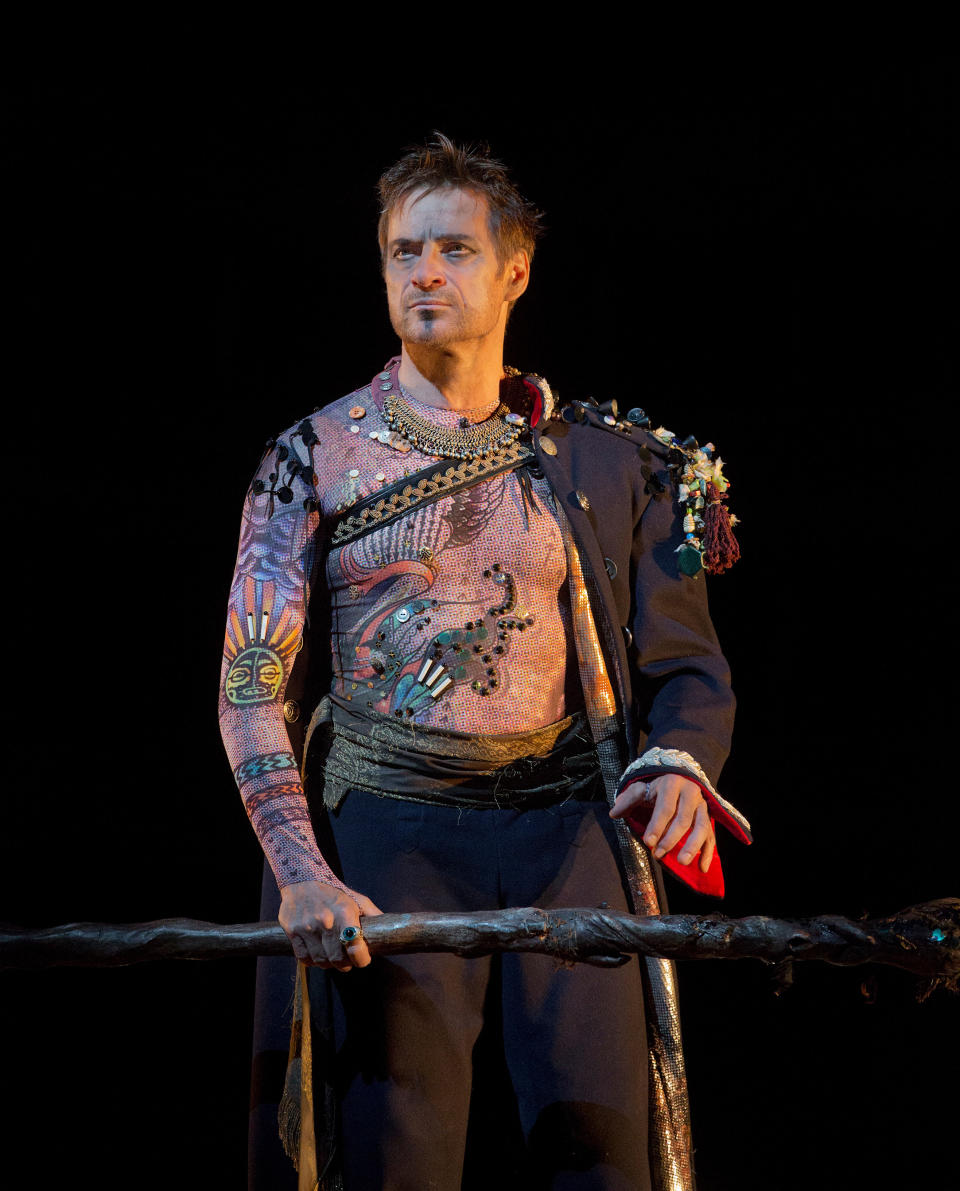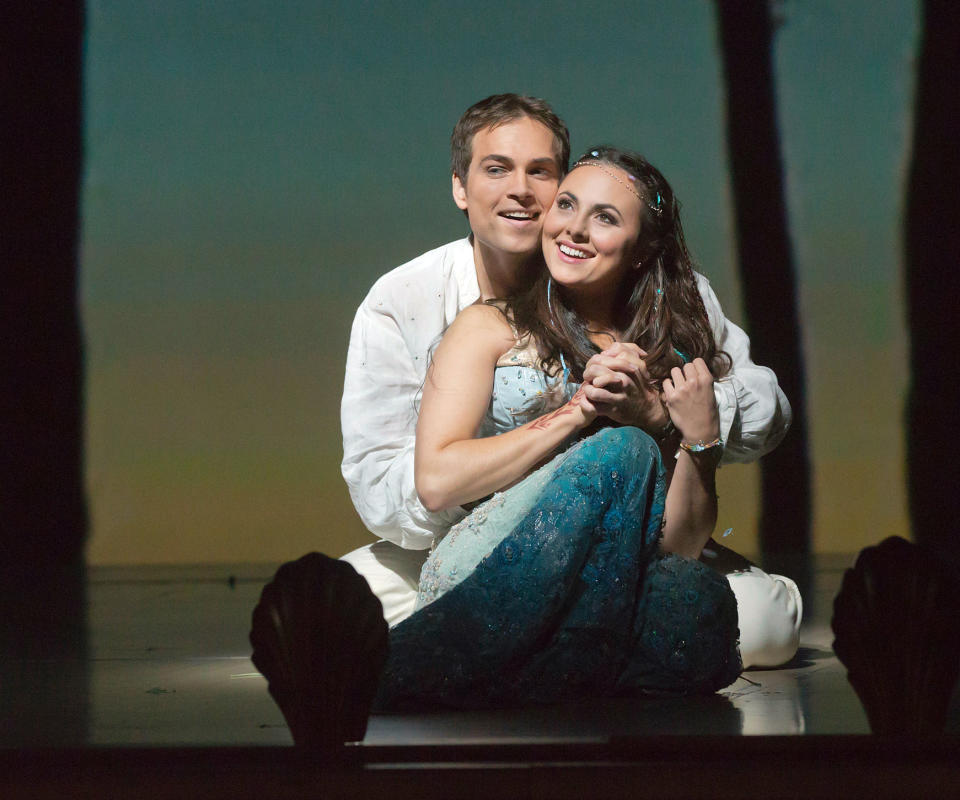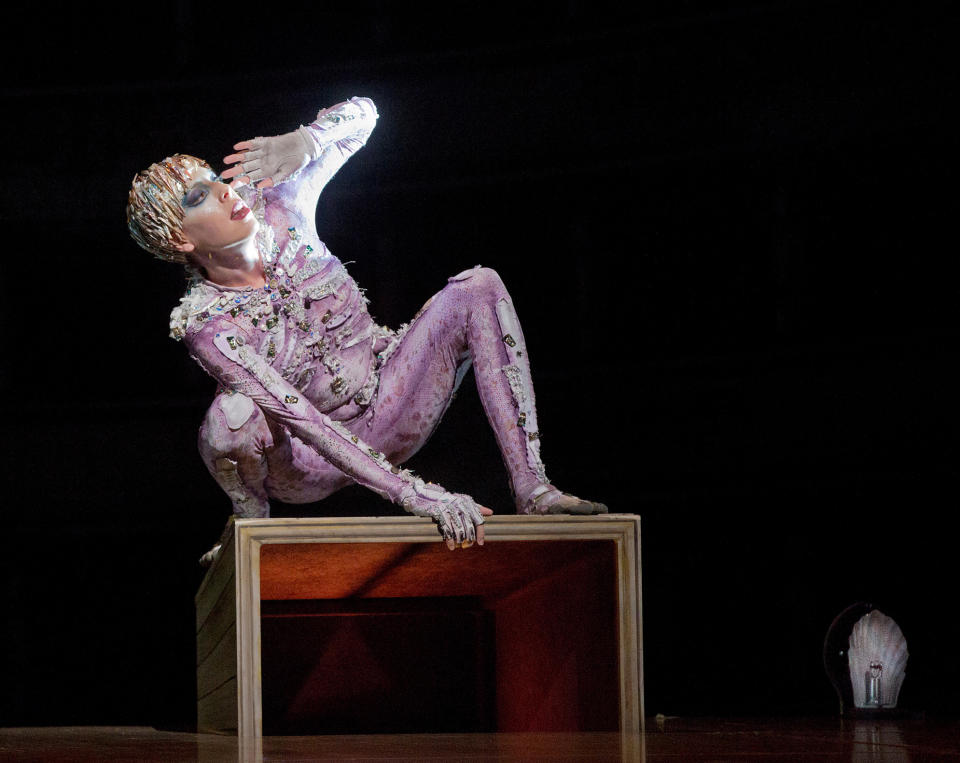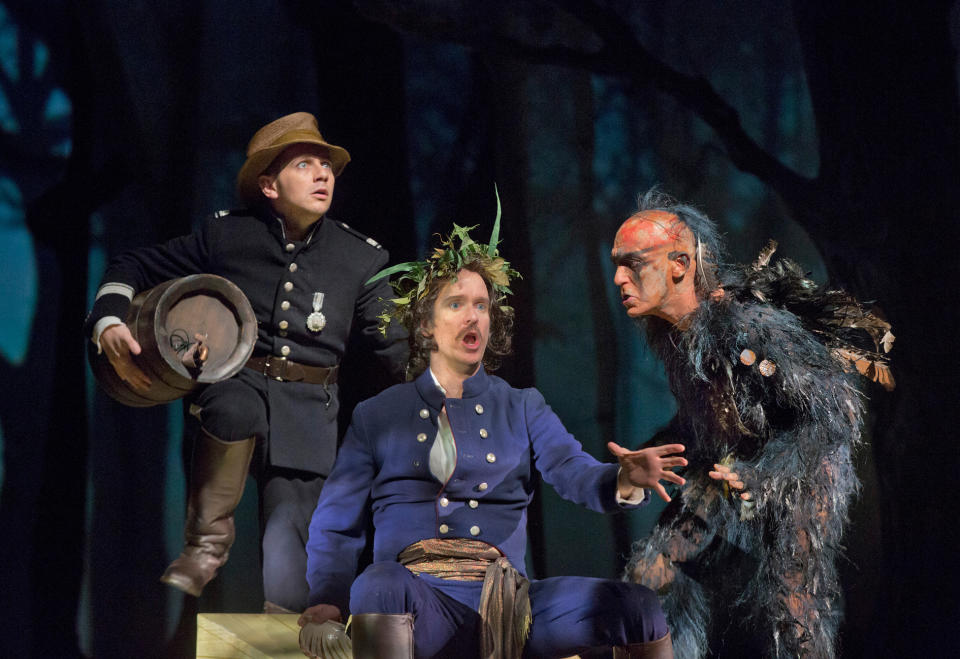'Tempest' at Met: The magic's in the music
NEW YORK (AP) — O brave new opera that has such music in it!
British composer Thomas Ades has written a magical score for "The Tempest," his setting of Shakespeare's tale of revenge and reconciliation, as resourcefully adapted by librettist Meredith Oakes.
And it sounded glorious Tuesday night when the Metropolitan Opera presented it for the first time with a strong cast and the composer himself conducting.
Ades (pronounced AH-diss) wrote the work on commission for the Royal Opera House in London, which premiered it to acclaim in 2004. It's a compact piece, barely two hours of music, but profoundly dense and intricate in the way it manages through shifting melody, rhythm and orchestral texture to recreate the world of the play in all its tumult and richness.
The score, by turns dissonant and lyrical, frenzied and calm, is filled with memorable passages of striking originality. Among them: the turbulent opening storm scene, when the exiled magician Prospero shipwrecks his enemies; a haunting aria in which the half-savage Caliban describes the sounds of the island to which he is rightful heir; a duet tinged with wonder for Prospero's daughter Miranda and her newfound love Ferdinand; a soaring, lyrical quintet for five of the principals in the final scene. And Ades has made the role of the spirit Ariel a tour de force for coloratura soprano, giving her a vocal line that hovers much of the time well above high C.
Oakes, an Australian playwright and poet, has trimmed the original and refocused some of the interplay among characters (in Shakespeare, Prospero intends Miranda to fall in love with Ferdinand; here it happens despite his wishes). She has stripped the iambic pentameter down to shorter couplets, many of them rhyming. Though this occasionally results in doggerel (Caliban: "You scorn me and you strike me, you say you do not like me"), for the most part it transposes the text into simple, singable verse.
With music and lyrics that do so well by Shakespeare, it's too bad the production by Robert Lepage isn't more faithful to the spirit of the original. Instead, the Canadian director — fresh from his controversial "Ring" cycle with its 24 metal planks — has imposed an elaborate and often extraneous concept on the proceedings.
He turns Prospero into a 19th-century nobleman, banished from his hometown of Milan, who recreates his beloved La Scala opera house on his island refuge. Each of the three acts presents a different view of the house — the auditorium, the stage, the backstage — and all the action takes place in these spaces, with Prospero as unseen stage manager, sort of an Italian version of the Phantom of the Opera.
There are clever touches, to be sure, as well as heavy use of Lepage's trademark acrobats and stunt doubles. And Jasmine Catudal's sets and Kym Barrett's costumes are appealing to the eye. But too often the gimmickry seems superfluous to the music and libretto, tacked on as if Lepage didn't trust the opera to work on its own terms.
Happily, the musical values in the performance are very high. Under Ades' inspired guidance, the orchestra plays with exceptional brilliance, and the chorus rises to the challenge of the unfamiliar score.
Baritone Simon Keenlyside, who created the role of Prospero, repeats it here and anchors the performance with somber dignity and strong vocalism, though some of the role now lies below his comfort zone. Mezzo-soprano Isabel Leonard makes a fresh, vibrant Miranda and debuting tenor Alek Shrader as Ferdinand matches her nicely with a free, lyrical sound.
As Ariel, Audrey Luna not only sings all those high D's, E's and F's with aplomb, she also bravely entrusts herself to various harnesses, wires and acrobats to keep her from falling as she repeatedly defies gravity. Tenor Alan Oke captures the poignancy beneath Caliban's roughness, and bass John Del Carlo brings gravitas to the role of the kindly Gonzalo — though he, too, has trouble at the low end of his register. Countertenor Iestyn Davies is a delight as the drunken Trinculo, and tenor Toby Spence plays the villainous Antonio with flair. As the sadder and wiser King of Naples, tenor William Burden sings with irresistible sweetness.
There are seven more performances through Nov. 17, including the Saturday matinee on Nov. 10, which will be broadcast live in HD to movie theaters around the world. The Met season is only a month old, but it's safe to say "The Tempest" will be remembered as one of its musical highlights.
